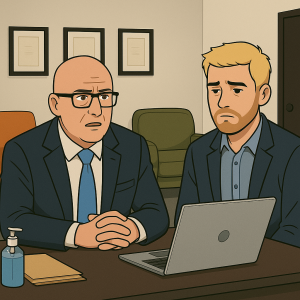1. Victim and Witness Rights
- Arkansas Department of Public Safety – Victim Services
Connects victims to services and outlines their rights under Arkansas law. - Legal Aid of Arkansas – Victim Resources
Lists victim rights and support tools, including protective order guidance.
2. Free and Low-Cost Legal Aid Programs
- Arkansas Legal Services Online
Offers free legal help, referrals, and self-help tools for civil legal issues. - Center for Arkansas Legal Services
Provides legal representation for eligible individuals in areas such as domestic violence and harassment.
3. Relevant Laws
- Stalking: Ark. Code Ann. § 5-71-229
What it means: Purposeful and repeated harassment that causes someone to fear for their safety or the safety of a family member. Includes following, threatening, or monitoring someone. - Harassment: Ark. Code Ann. § 5-71-208
What it means: Repeated communication or behavior that alarms or seriously annoys another person. Includes phone calls, emails, texts, or other digital contact. - Bullying: No specific adult criminal statute. Covered under Arkansas education law and school policies.
What it means: School-based bullying—including cyberbullying—is addressed under the Safe Schools Initiative Act. Schools may impose discipline or refer serious cases to juvenile court. - Defamation: Civil tort, not criminal. Governed by Arkansas common law and civil court system.
What it means: False statements that cause reputational harm may be grounds for a lawsuit. Libel (written) and slander (spoken) claims can apply to online and offline defamation.
4. Reporting and Hotlines
- Dial 911 in emergencies or if immediate danger is present.
- Report non-emergency incidents to your local police or sheriff’s department.
- Arkansas Coalition Against Domestic Violence
Offers support, legal help, and safety planning tools. - Statewide Domestic Violence Hotline: 1-800-269-2400
Available 24/7 for confidential assistance and shelter referrals.
5. Support Organizations
- Arkansas Coalition Against Domestic Violence
Connects survivors with shelters, legal advocates, and advocacy services. - WRMC Victim Assistance Program
Provides trauma-informed care and support to victims in northeast Arkansas.
6. Civil Remedies and Protection Orders
Arkansas residents can file for an Order of Protection or Injunction Against Harassment at local courts. These orders may prohibit contact, threats, or further harassment. Legal aid organizations can guide individuals through the process.
Important Note on Jurisdiction: If the individual you are seeking a restraining order against lives in a different state, your local court may not have jurisdiction to enforce that order. In most cases, you must file for protection in the state where that individual resides or where the conduct occurred. This applies even in situations involving online harassment, defamation, or stalking. Contact legal aid services in both your state and the other person’s state for guidance.
7. Youth and School Resources
- Arkansas Division of Elementary and Secondary Education – Bullying Resources
Provides policy guidance, student protections, and district reporting procedures.
8. Court Forms and Filing Help
- Arkansas Judiciary Forms
Includes protective order forms, instructions, and self-representation materials.
9. Online Safety and Privacy Tools
- NNEDV Tech Safety Toolkit
Offers tools and guidance for staying safe online and protecting digital privacy.
Disclaimer: This information is provided for educational purposes only and does not constitute legal advice.




